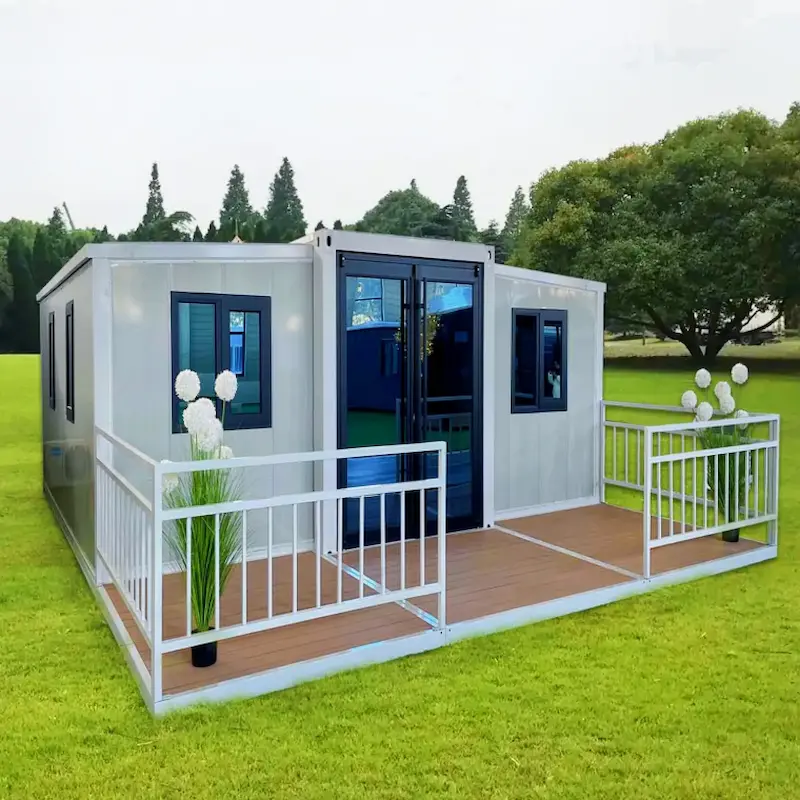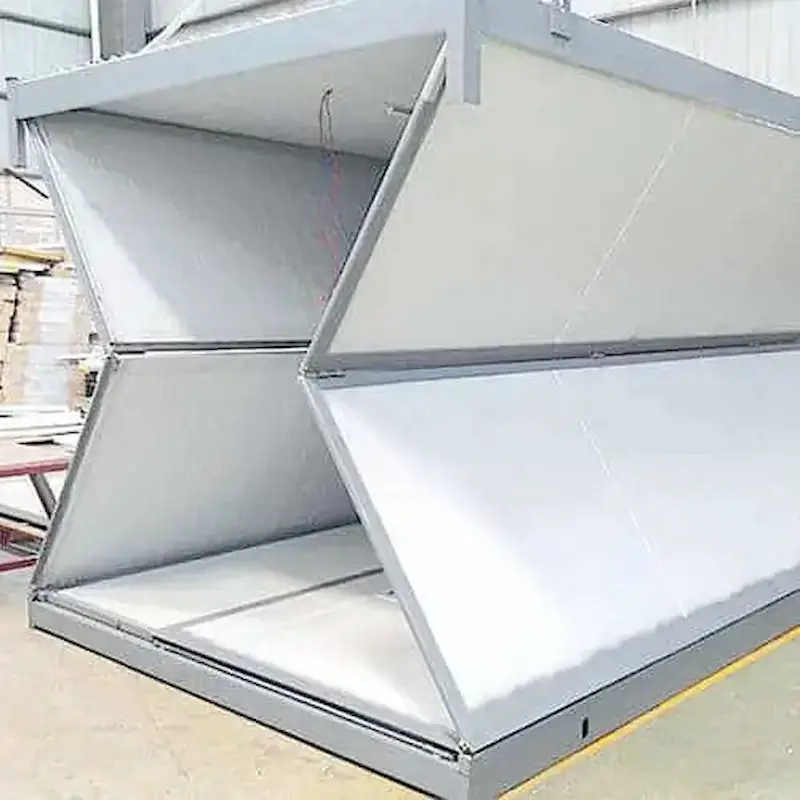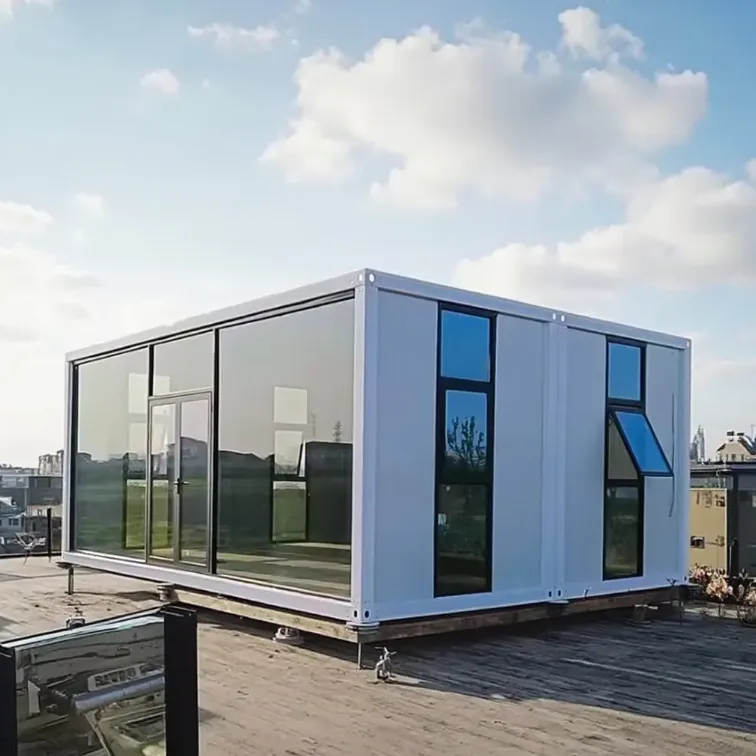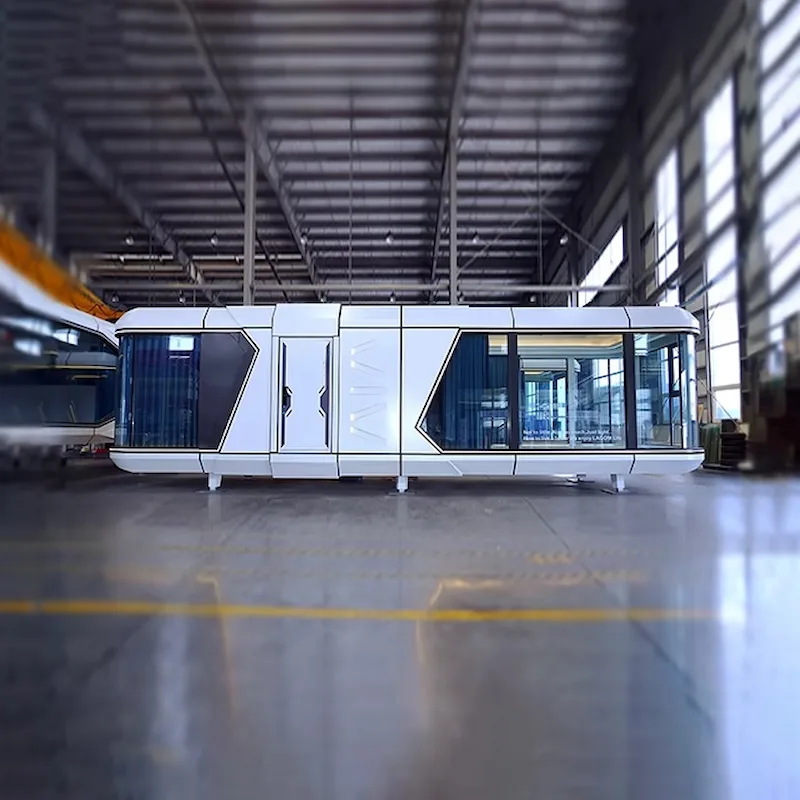Products
The Development History of Mobile Homes

Origin and early development:
The concept of mobile homes can be traced back to the early 20th century. The original form was mainly a living space on carriages, oxcarts and other vehicles. With the popularity of railways and automobiles, in the mid-20th century, mobile homes gradually developed into structures that could be moved by wheels or other means of movement.
- 1930s: In the United States, with the construction of automobiles and road networks, recreational vehicles (RVs) began to become a popular form of mobile residence. At that time, RVs were mostly trailer-type, usually towed by cars, with simple internal facilities and suitable for long-term or short-term hiking trips.
- 1940s and 1950s: During this period, industrial production promoted larger-scale mobile home production due to postwar construction needs and the Great Depression. Many mobile homes are used as temporary housing, especially for workers.
- 1960s: With the advancement of urbanization across the United States, mobile homes gradually developed into a more standardized residential form, and many mobile garages and mobile homes began to incorporate more modern home facilities.

Modern development:
Entering the 21st century, mobile homes have gradually developed into green, sustainable and intelligent with the increasing awareness of environmental protection and energy saving. Modern mobile homes are no longer just “simple shelters”, but focus on comfort, technology and environmental friendliness.
- Since the 2000s: With the use of environmentally friendly building materials and the introduction of sustainable design, many countries and regions have begun to promote green mobile homes. Solar panels, rainwater recovery systems and natural ventilation come as standard.
- In recent years: Mobile homes have become more and more diverse, including modern container homes, modular homes, etc. Especially in some fields such as temporary resettlement, post-disaster reconstruction, tourism and vacation, mobile homes have been widely used due to their convenience, flexibility and energy-saving characteristics.
Product Category
Advantages of Mobile Homes

Flexibility and Convenience:
- Mobility: The most significant feature of a mobile home is that it can be moved at any time. Since it is designed with easy transportation in mind, users can easily move the house from one place to another, adapting to changing living needs.
- Adaptability: For special environments or emergencies, mobile homes can be quickly set up to provide temporary shelter. Post-disaster reconstruction, temporary housing, construction site accommodation, etc. can all rely on this type of housing.

Cost Effective:
- Lower costs: Mobile homes are generally less expensive to manufacture and build than traditional home construction. Due to factory production and standardized components, the construction period is short and the cost is relatively saving.
- Easy maintenance: Many mobile homes are modular in design, making parts easy to replace and repair. Maintenance costs over the life of the home are also lower than traditional construction.

Environmental protection and Sustainability:
- Green design: Modern mobile homes are paying more and more attention to sustainability, using environmentally friendly building materials, and considering energy and water conservation in the design process. Many houses are equipped with solar panels, wind energy equipment, rainwater recycling systems, etc., providing users with a more environmentally friendly way of living.
- Low carbon emissions: Mobile homes can reduce carbon emissions during the construction process and are in line with the concept of green building.

Adapt to Different Life Needs:
- Diversification: With the advancement of technology, modern mobile homes are no longer just simple residences, but can be designed into spaces with different functions according to user needs, such as family homes, vacation homes, offices, etc. Its internal layout can be very flexible to meet multiple needs such as living, working, and entertainment.
- Comfort and intelligence: With the development of smart home technology, modern mobile homes can also integrate automated control systems, smart lighting, smart security and other systems to provide a more convenient and comfortable living experience.

Disaster Reconstruction and Emergency Response:
- Rapid deployment: Mobile homes can be set up quickly, making them particularly suitable for post-disaster rescue and emergency response. For example, in resettlement work after natural disasters, mobile homes can provide quick and comfortable temporary housing to help disaster victims return to normal life.
- Flexible resettlement: For scenarios such as population migration and refugee resettlement, mobile homes can flexibly arrange living spaces and help solve the problem of temporary housing for a large number of people
Advantages and Features of Various Mobile Homes

Recreational Vehicle (RV):
- Features: An RV is a mobile home with a power system, usually used for travel, vacations and long-distance travel. Their interiors are usually equipped with kitchens, bathrooms, bedrooms and other facilities to provide a complete living experience.
- Advantages: Highly mobile, convenient for long-distance travel, fully functional, suitable for camping, vacation and other activities.

Container House:
- Features: Container houses use shipping containers as the main structure, which can be transformed into sturdy homes after modification. Container homes have become a popular choice in recent years due to the sturdiness and reusability of container materials.
- Advantages: High strength, earthquake resistance, wind resistance, reusable, low cost. Suitable for post-disaster reconstruction and long-term residence.

Modular Mobile Home
- Features: Modular houses are composed of multiple prefabricated modules that can be combined to create houses of different sizes and functions according to needs. These modules can be disassembled and reassembled as needed, making them very flexible.
- Advantages: Strong flexibility, fast construction speed, free design and easy transportation. Suitable for short and long term stays.

Residential Trailer:
- Features: A residential trailer is a mobile home based on a trailer platform, usually consisting of a trailer and prefabricated house parts. It can be towed by car or truck and is widely used for temporary housing.
- Advantages: Easy to transport, low cost, suitable for short-term temporary residence.

Eco Mobile Home:
- Features: This type of mobile home focuses on environmental protection and self-sufficiency, and usually includes solar energy, battery storage, rainwater collection and other systems. Suitable for residents who pursue environmental protection and independent living.
- Advantages: Environmentally friendly, sustainable, energy efficient, and suitable for living in remote areas.
Solution for mobile house
Leave us a message if you have any questions or needs on our houses. Our team will give you a reply within 12 hours and provide the most suitable and cost-effective solution for you.








